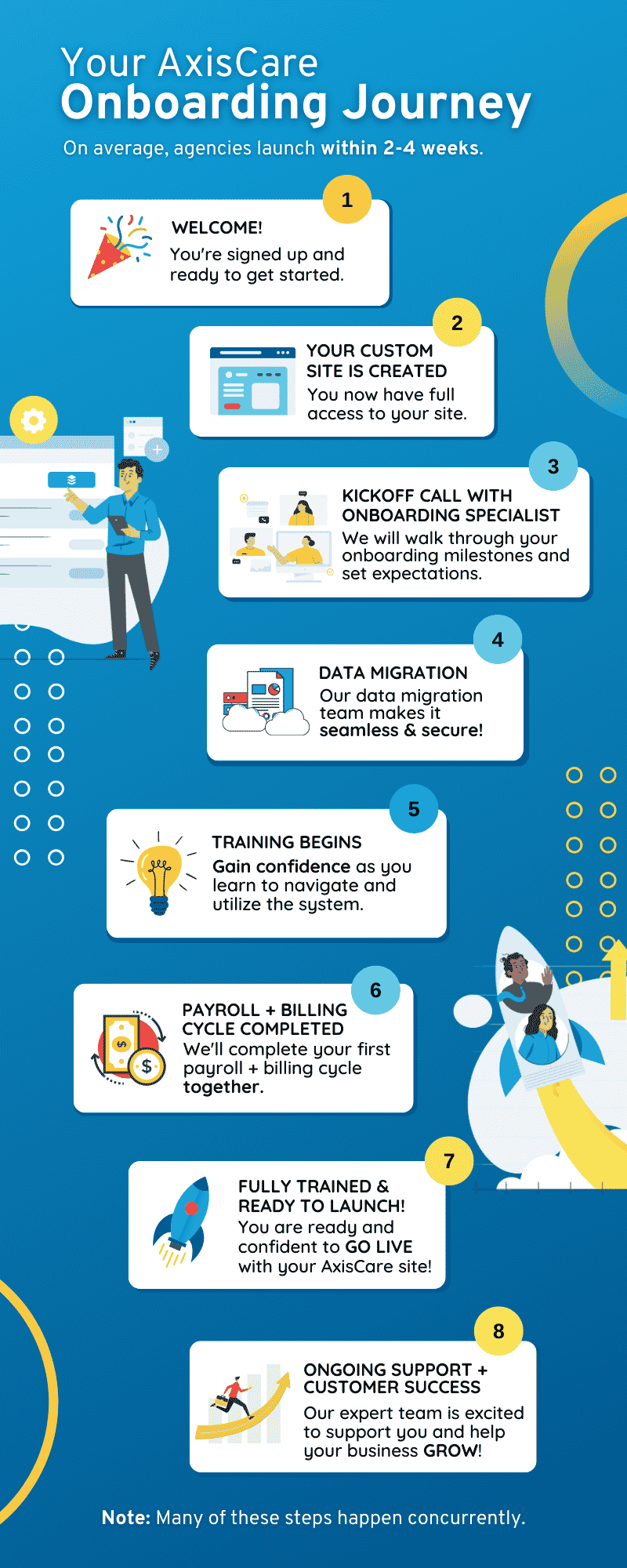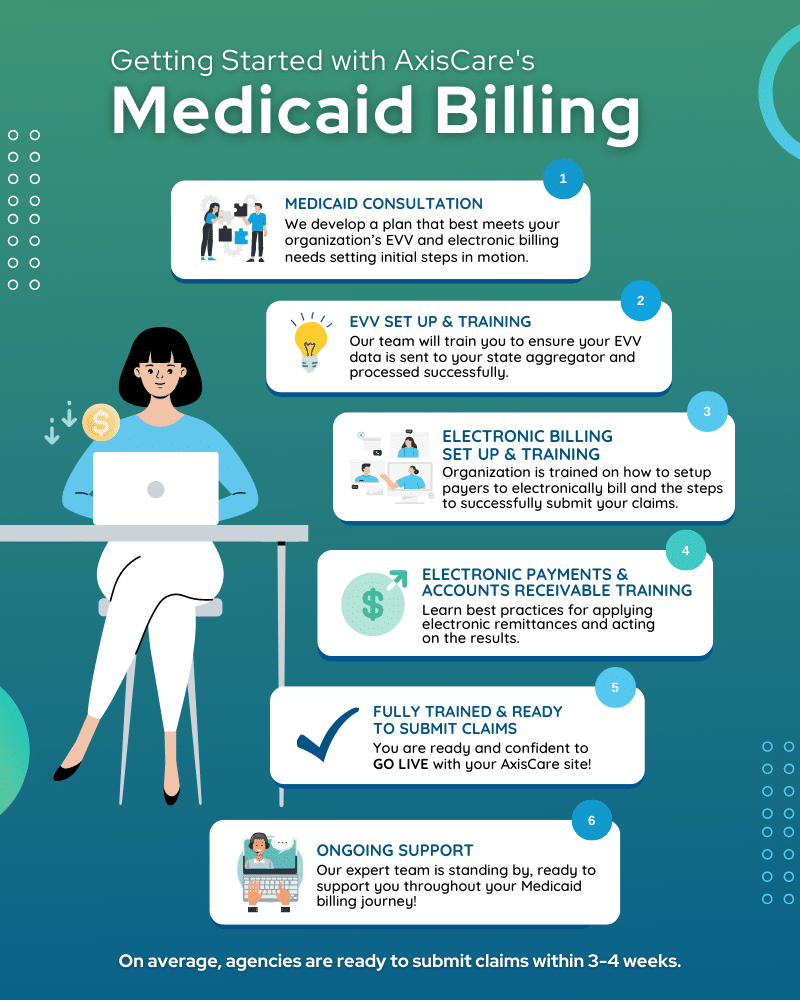Your home care business may be flourishing as the demand for caregiving increases, but alongside a generous income and client base lies a growing potential for overworked caregivers.
If it weren’t for a compounding nationwide caregiving shortage, bringing on additional hands to avoid overworking your staff would be an obvious solution. Instead, the responsibility for taking on additional clients often falls on the shoulders of existing caregivers.
Your caregivers are the lifeline to your client’s happiness and your agency’s success and avoiding significant burnout and high turnover is crucial to keeping the balance.
If you’re concerned that some of your caregivers are already suffering from work fatigue, here are some tell-tale signs:
8 Signs Your Caregivers are Over-Stressed
If your caregivers are exhibiting any of the symptoms below, it’s time to either reassess their workloads or find alternate ways to help:
- Acting listless/uninterested in work or personal activities
- Seemingly detached from others and from their work
- On-edge/irritable
- Emotionally overwhelmed
- Feeling hopeless
- Not sleeping or eating well
- Feeling anxious/depressed
- Other changes to health
4 Constructive Ways to Support Your Caregivers
While these symptoms can be tied to a wide range of factors, caregivers should know if the source of their stressors is tied to overwork.
If so, there are reassuring paths forward you can take as an agency owner to put them at ease.
Caregiver support should be available both proactively and retroactively, ensuring your staff feels valued. Here are a few methods you can implement today, no matter your caregiving scenarios.
1. Ask for Routine Job Feedback
Caregivers work remotely, ensuring your staff stays top of mind by reaching out frequently and checking in on their employees is vital to a thriving work ecosystem. We recommend agencies having routine calls with caregivers every few weeks to “check the pulse” of their staff. Questions can include:
- Do you feel like you have the best resources for a healthy work environment?
- Are you comfortable with your workload?
- Are you feeling supported by us? How else can we help?
Caregivers can also be asked to fill out surveys, either by name or anonymously, to gauge employee morale, but if agencies don’t ask, caregivers might be afraid to speak up.
2. Cover the Costs of Counseling
Regardless of providing health insurance for your employees, you can offer them short-time counseling and health-focused educational clinics.
These can include free Employee Assistance Programs, virtual mental health and education conferences, and in-person therapy sessions.
All offers should be well advertised and promoted so that employees are encouraged to take advantage of the benefits.
3. Increase Employee Perks
Incentives make difficult work more enjoyable. They can even be the sole reason caregivers stay in demanding jobs.
In short, perks are worth the extra employer expense. Incentives can include holiday bonuses, extra vacation time, gift cards and spa days, and anything that supports relaxation and time away from work.
4. Create a Workplace Community
Remote work means caregivers have fewer chances to meet coworkers and form in-person social networks. They can feel especially isolated on the job and in work-related struggles.
Fortunately, there are many online caregiving forums that offer that sense of community. While some are specific to family caregivers, many of the same issues apply for agency workers. Here, caregivers can vent to one another, get caregiving-related information, and have a sense of comradery in their industry, despite working remotely.
Agencies can also create their own online forums, either via their website or social media, to encourage caregivers to connect. These networks can be smaller and more personable.
It’s also important not to overlook events like company picnics and holiday parties. These give caregivers a chance to meet in person, share stories, and find encouragement. This increased camaraderie and community is significant for the overall health and success of your agency.
Caregiver burnout is evident and growing within the industry as workload increases. It also makes hard-found retention even more volatile for home care agencies.
It’s essential to support your employees now in ways that are effective and long-lasting.









